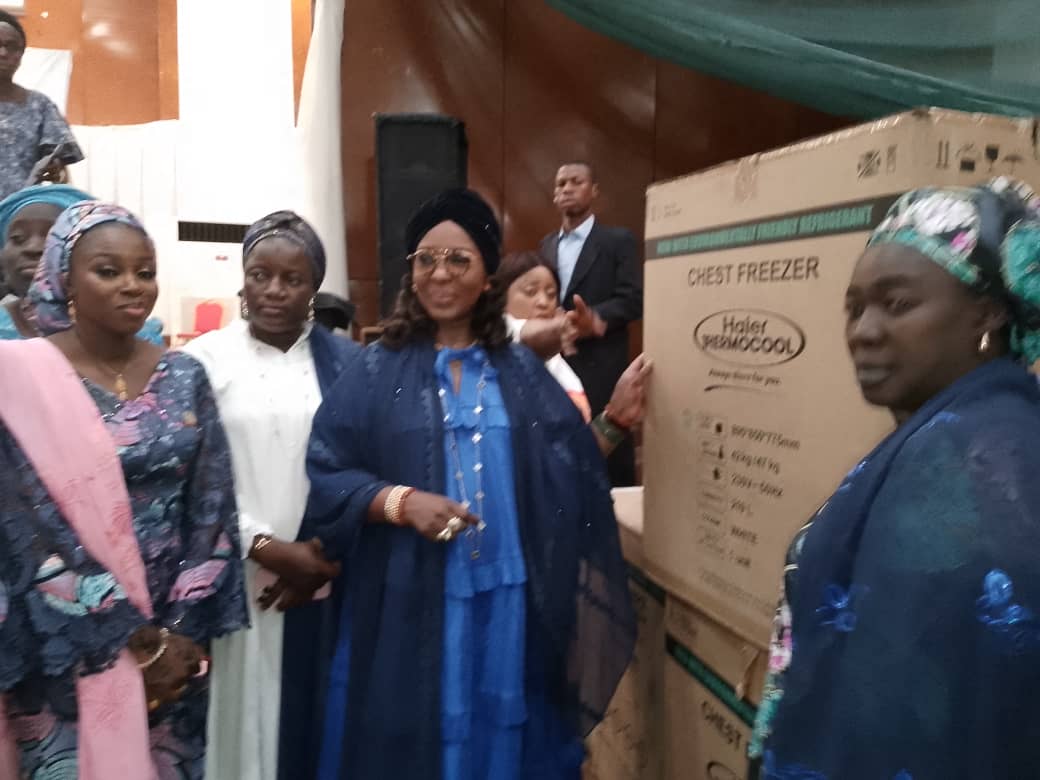6 total views today
By Emmanuella Anokam
The Nigerian Midstream and Downstream Petroleum Regulatory Authority (NMDPRA) has banned 60,000-litre petroleum tankers from operating on Nigerian roads from March 1, to reduce truck-in-transit incidents.
NMDPRA’s Chief Executive, Mr Ahmed Farouk, announced the ban on Wednesday in Abuja while briefing journalists after a Stakeholders’ Technical Committee Meeting.
He added that by the fourth quarter of 2025, trucks with a 45,000-litre capacity would no longer be allowed to load petroleum products.
The meeting was attended by officials from the Department of State Services (DSS), Federal Fire Service, Federal Road Safety Corps (FRSC), and the National Association of Road Transport Owners (NARTO).
Also present were representatives from the National Union of Petroleum and Natural Gas Workers (NUPENG), Standards Organisation of Nigeria (SON), the Depot and Petroleum Products Marketers Association of Nigeria (DAPPMAN), and NMDPRA.
Speaking to journalists, Farouk, represented by Mr Ogbugo Ukoha, NMDPRA Executive Director of Distribution Systems, Storage, and Retailing Infrastructure, said the decision was made in response to the frequent road accidents involving heavy-duty petroleum tankers.
“The first stakeholders’ technical committee met today to drill down and set timelines for about 10 resolutions on how to address the significant increase in tanker incidents and fatalities,” he said.
Farouk stated that stakeholders and key agencies had agreed that from March 1, no truck carrying more than 60,000 litres of hydrocarbons would be allowed to load at any depot.
“The important thing about this is that, for the first time, consensus was built among all stakeholders, and we will work together to ensure the safe transportation of petroleum products across the country,” he said.
The NMDPRA Chief dismissed recent claims about the quality of fuel in circulation, calling them “bogus, misleading, and unscientific”.
He assured Nigerians that all imported and locally refined petroleum products met strict regulatory standards before being released into the market.
The regulator vowed to uphold petroleum industry standards and specifications, stating that recent social media claims about fuel quality were baseless and should be ignored.
He said the authority would not respond to every public comment but warned against misleading information.
“But it’s important that people who dabble into the social media space are reminded that it is actually disrespectful if you imagine that Nigerians are gullible.
“Nigerians are discerning enough to know that energies need to be directed positively. People who make unscientific claims, bogus data expertise are really not helping the situation.
“We’re working very hard, in compliance with the presidential mandates, to support local refineries, build capacity for sufficiency, and ensure not just quality but also transparent and fair pricing,” he said.
He reaffirmed NMDPRA’s commitment to the Petroleum Industry Act (PIA) 2021 and SON’s specifications, which include parameters such as research octane number, sulphur content, density, colour, and oxygenate levels.
“Before any product is distributed, the regulator ensures that from the load port, whether from a domestic refinery or imports, and at the discharge port, accredited laboratories must test every product.
“The accredited laboratories must duly issue certificates of quality confirming that the product in the vessel meets specifications.
“Only on that basis are products discharged and distributed across the country,” he said.
He explained that hydrocarbons are not pure compounds by nature, and the authority specifies a range of acceptable values, ensuring test results fall within these limits.
Sulphur content, he added, must be controlled, as excessive levels could cause corrosion and contribute to environmental pollution.
Farouk also noted that daily Premium Motor Spirit (PMS) supply, which averaged 66 million litres before the subsidy withdrawal, now stands at around 50 million litres, with local refineries contributing less than half of the total supply.
“All of us experienced a yuletide free from scarcity. Let me reconfirm that from year to year, PMS demand increased in 2021, 2022, and 2023.
“Before the current administration took office, daily PMS supply averaged about 66 million litres.
“Following the subsidy withdrawal, we immediately saw a steep decline in consumption, and since then, we’ve averaged around 50 million litres daily, a considerable reduction in volume,” he said.
Of the 50 million litres consumed daily, less than 50 per cent is supplied by domestic refineries, while the shortfall is met through imports, as stipulated in the PIA.
He further disclosed that none of the Oil Marketing Companies (OMCs) operating refineries in Nigeria had imported PMS this year.
“The other OMCs are importing to bridge the shortfall. Without these imports, we would be facing scarcity.
“The regulator is committed to ensuring sufficient petroleum product supply across the country,” he said. (NAN) (www.nannews.ng)
Edited by Salif Atojoko




 3 days ago
7
3 days ago
7








 English (US) ·
English (US) ·